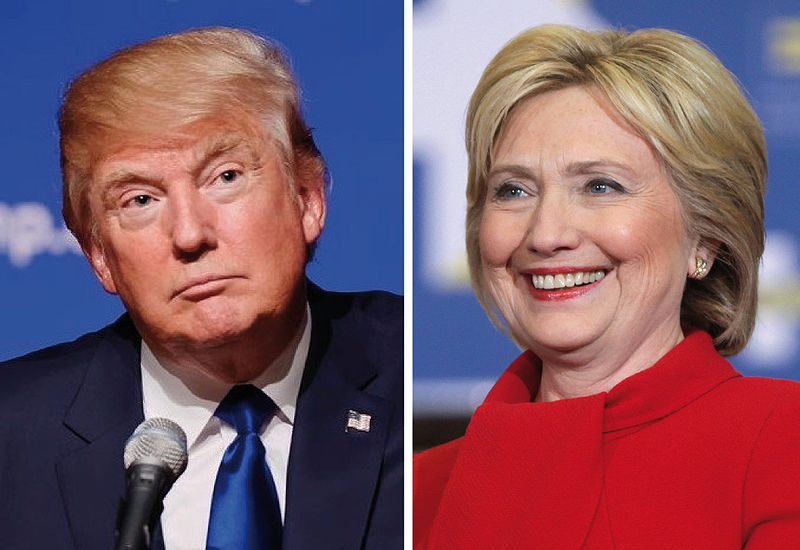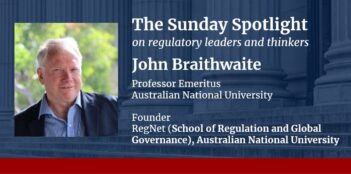
Interspersed between jeers and jabs, substance takes center stage during widely anticipated event of the presidential race.
Last night’s presidential debate saw an occasionally substantive discussion of policy and, at one point, even a conversation about regulation itself.
As the candidates debated for the first time, the discussion, as directed by moderator Lester Holt, began with a strong focus on the economy, transitioned for a time to crime and race relations, and ended with a revealing argument about foreign policy.
The discussion of the economy was wide-ranging and began with both candidates arguing for their own vision for how to improve the situation of the American worker. Hillary Clinton focused on the fairness of the American economy with proposals to raise the minimum wage, promote corporate profit-sharing, and subsidize affordable child care. Donald Trump’s own vision was to retain manufacturing jobs by taxing imports from companies that move jobs outside of the United States. He also suggested that the corporate tax rate for both large and small businesses be reduced to 15 percent. However, he did not specify if the small businesses specified include “passthrough” entities such as LLCs, which has been a matter of some controversy.
Trump then argued that the United States should do a better job in negotiating trade deals and decried NAFTA as the “single worst trade deal ever approved in this country” due to its impact upon the American manufacturing industry, and both candidates voiced opposition to the Trans-Pacific Partnership.
There was then an extended discussion of tax policy with both candidates outlining their established plans. Mr. Trump stated that not only would Secretary Clinton’s tax policy “drive business out” but the increased regulations that would come from a second Clinton administration would bankrupt existing businesses and discourage businesses from starting. Secretary Clinton responded that she would instead “cut regulations and streamline them for small businesses.” Also with regard to regulation, Secretary Clinton stated that the financial crisis was partially caused by tax cuts for the wealthy and policies that had taken regulators’ “eyes off of Wall Street.”
The second section of the debate featured some agreements in policy and major disagreements about the state of crime and inner cities in the United States. Both candidates agreed that individuals on the “No-Fly List” should be barred from obtaining firearms, with Mr. Trump adding that legal help should be provided by the government to help those wrongly included on that list. Yet, Mr. Trump redoubled his support for “stop-and-frisk” policies of which both moderator Lester Holt and Secretary Clinton questioned the constitutionality and the discriminatory impact.
Furthermore, the necessity of such measures was a point of debate with Mr. Trump stating that “African-Americans, Hispanics are living in hell because it’s so dangerous. You walk down the street, you get shot.” Secretary Clinton pointed to the economic and cultural vibrancy of black communities as well as the nationwide decrease in crime, making tactics such as officers’ “stop-and-frisk” unconstitutional and ineffective. Secretary Clinton also described the problems that everyone, including police, face with implicit racial bias and the necessity of providing federal funding for police training.
Then, after a brief discussion where the candidates agreed on the need for greater cybersecurity measures, Mr. Holt turned the discussion to foreign policy that saw a revival of the occasional mentions of ISIS that had already been made that night. The starkest difference between the candidates’ foreign policy proposals was the United States’ role in NATO. Mr. Trump suggested that allies, whether members of NATO or otherwise, should contribute more resources to defense in order to lessen the burden on the US. Furthermore, he argued that NATO does not adequately focus on terrorism and that “we have to get NATO to go into the Middle East.”
In contrast, Secretary Clinton described the invocation of Article 5 for the war in Afghanistan as a successful mobilization of NATO to combat terrorism. She also addressed foreign leaders directly stating that “I want to reassure our allies in Japan and South Korea and elsewhere that we have mutual defense treaties and we will honor them.” There was also discussion over the nuclear arsenal where Mr. Trump, in an echo of the Cold War’s supposed “missile gap,” argued that the United States needed to update its nuclear deterrent-related technology to keep pace with Russia’s “newer [nuclear] capability.” Secretary Clinton also defended the Iran nuclear deal as a “put[ting] a lid on Iran’s nuclear program without firing a single shot.” Mr. Trump contended that the deal was poorly negotiated.
Finally, the debate was also remarkable for what was not said: climate change was only featured briefly in other contexts, such as green energy’s role in the American economy. Healthcare was barely mentioned, and the Affordable Care Act was not discussed at all. Same-sex marriage, judicial nominations, Social Security, and Medicare were similarly ignored. Even immigration policy, despite its prominence in the Trump platform, was not mentioned. It remains to be seen if these issues are now no longer as salient to the American public, which we will discover in the upcoming presidential debates on October 9th and 19th as well as the vice presidential debate on October 4th.



